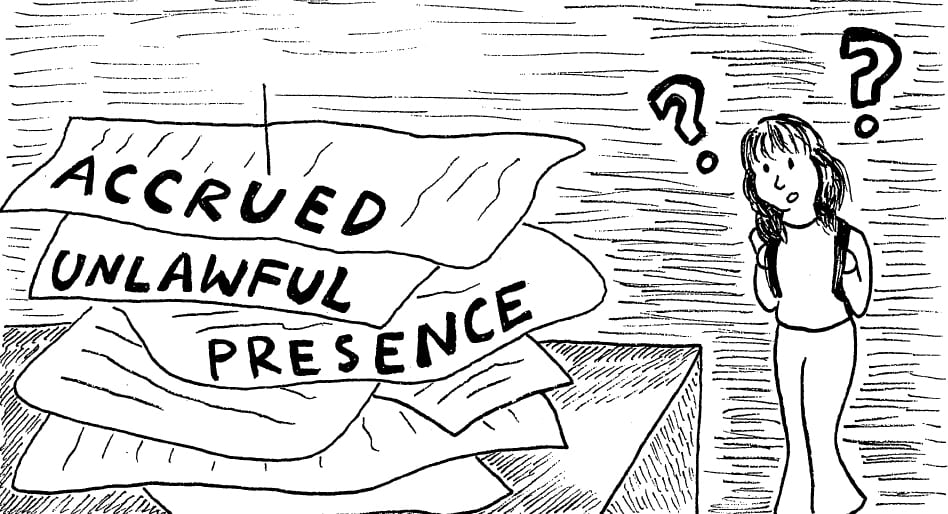
“Have you heard of the new immigration policy?” asked Megan Carmes ’11, the assistant director of international student engagement. Silence fell upon the Black and Gold Ballrooms as returning international studentslooked at each other with quiet concern.
Carmes then announced the major change that the U.S. Citizenship and Immigration Services (USCIS) published Aug. 9. Previosly, nonimmigrants on F, J, and M visas – international students in the United States – were admitted for “Duration of Status” without a certain date by which they must depart the U.S. When the post titled “Changing Policy on Accrued Unlawful Presence by Nonimmigrant Students and Exchange Visitors” appeared on the USCIS webpage, this rule no longer applied.
“I won’t have a way of knowing if I violated a rule or whether or not my unlawful presence has started to accrue.” – Skye Nguyen ’21
I once thought the journey to an American college was challenging enough due to long flights and homesickness. A better and affordable education abroad was the only fuel that kept me going. Now, I face the possibility of losing my status and residency at U.S. borders.
It is stated on the site that nonimmigrants on F, J and M visas will no longer have lawful residency if they violate their status as a student. The smallest violation of their student status will bring an end to one’s Duration of Status and will deem them as unlawfully present – whether they know it or not. Status violation includes activities such as failure to enroll in a full-course load, staying in the U.S. 60 days beyond one’s graduation date and – the extremely vague – “unauthorized activity,” which includes failure to report an address change within 10 days or working a day before or after an approved Curricular Practical Training (CPT).
For example, if, as an international student, I receive a CPT approved by St. Olaf College that is not considered to be directly connected to my major, I would have carried out an “unauthorized activity.”
The punishment for these violations? A three year ban on entry to the U.S. if one possesses an unlawful presence of 180 days. A 10-year ban on entry to the U.S. can result if the number of days exceeds 180 days. This policy affects students in any college or high school on F, J and M visas. As of today, it would affect around 1.21 million international students who worked hard to be where they are.
As an international student who has lived and studied in the U.S. for more than three years, I have never felt more worried about my status. The fact that the USCIS put the vague “unauthorized activity” in the memorandum made the policy so much more confusing. I understand that as a nonimmigrant living in the States, I need to be on my best behavior to keep my status and residency. However, this becomes problematic when I don’t have a way of knowing if I have violated a rule or whether or not my unlawful presence has started to accrue.
Possible violations are found when a student on F, J or M visa apply for a new U.S. visa, when they enter the U.S. at customs or when they apply to USCIS for benefits like CPT, Optional Practical Training (OPT), STEM OPT or work sponsored visas.
Sometimes, the Department of Homeland Security can pull a name out of the system and randomly investigate students or instutions like St. Olaf College. A violation not only affects a person’s ability to re-enter the U.S., but also impacts an individual applying to graduate school or for work visas. In situations where one wants to apply for a green card but has accrued unlawful presence without knowing, their green card application will be rejected, they will be asked to leave the U.S. immediately. Then, they will be banned from re-entering for a certain amount of years.
Starting Aug. 9, 2018, international St. Olaf students began needing to continually update the College about changes in residence, internships, classes and other plans. This includes a semester or interim off and dropped or added majors or concentrations. Before accepting employment off-campus, including unpaid volunteer positions, international Oles need to consult a director of international student engagement as well.
It is also important to keep in mind international Oles who are have refugee status. What would happen if they unknowingly accrue unlawful presence in the States? What would happen to them if Homeland Security decides to check up on them randomly? Where would they go?
More than anything, I am worried for myself and other international Oles on campus. At this point, there is little we can do besides wait for a more elaborate explanation of the violations we need to avoid as well as a way to find out if we have unlawful presence in the States. The door that opened to us when we received our acceptance letters from St. Olaf might suddenly shut before our eyes without us even knowing it happened.
Skye Nguyen ’21 (nguyen32@stolaf.edu) is from Hanoi, Vietnam. Her major is English.












